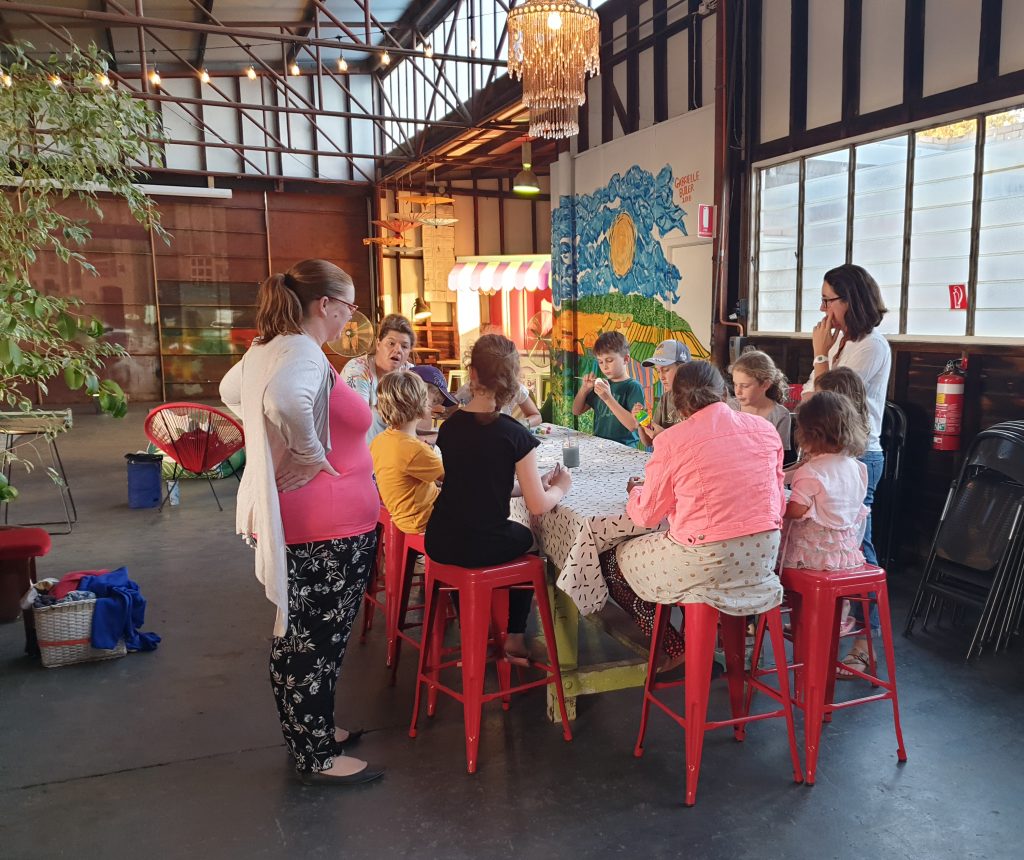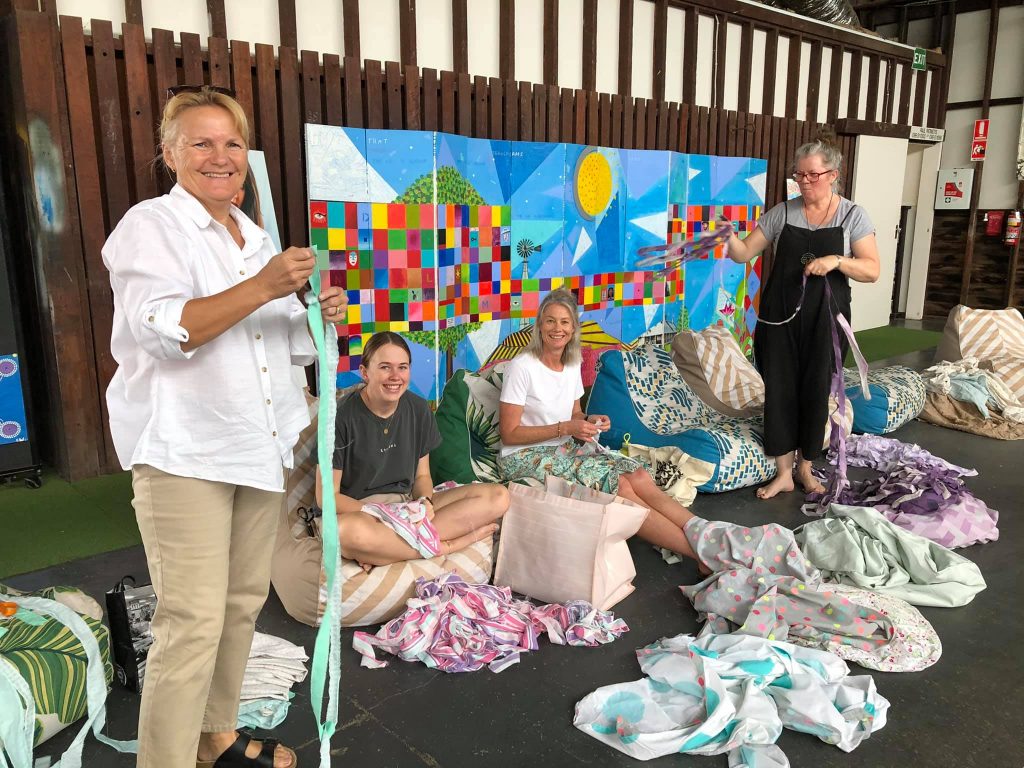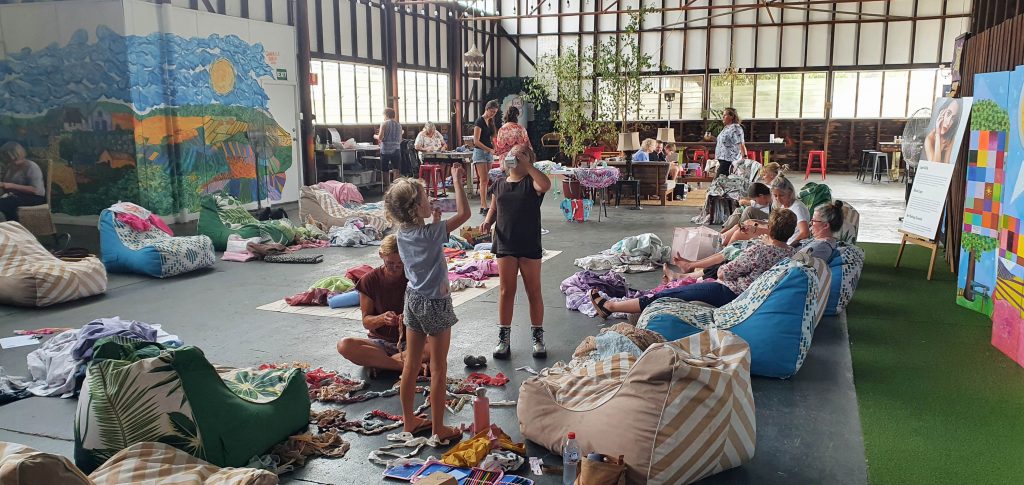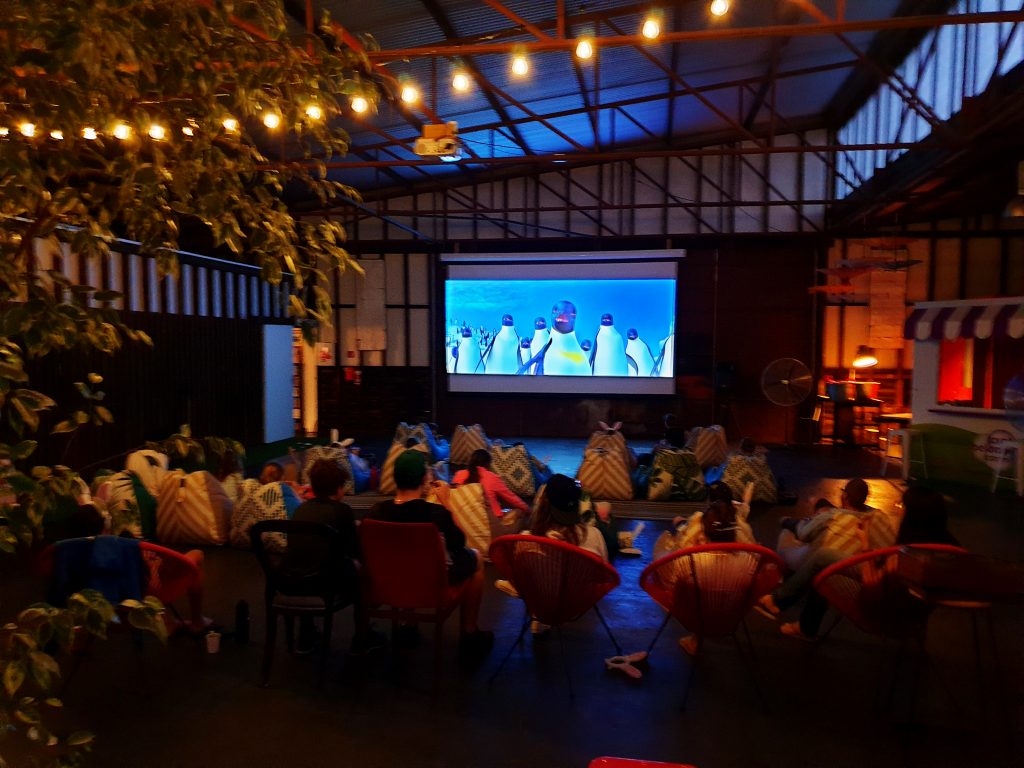Foundation for Rural & Regional Renewal (FRRR)
On Yued, Amangu, Badymia and Widi Country
Carnamah is a town and farming community 300 km north of Perth in WA. Located on Carnamah’s main street, The Exchange is a repurposed heritage building that has been transformed into a multipurpose community and visitor centre. Run by North Midlands Project Inc, it is a not-for-profit arts, culture, history and heritage organisation working towards happy, healthy communities and vibrant, connected towns. They deliver activities across the North Midlands – the seven regional local government areas of Carnamah, Coorow, Mingenew, Morawa, Perenjori and Three Springs.
The Exchange is used on a weekly basis as the home of a local painting group, writing group, youth coding club and the regional Five Gums Scout Group. The space is also utilised for the delivery of many other community workshops and events facilitated by North Midlands Project – all of which are provided to the community free of charge to ensure they are accessible.
North Midlands Project received broad community feedback that people loved The Exchange, especially its welcoming vibe, but that it got too hot in the back section of the building during the warmer months. On occasion, Carnamah is the hottest place in WA, with summer temperatures averaging 36 degrees. This heat renders the space unusable for the best part of four months in the year.
The management committee received a $10,000 Strengthening Rural Communities grant, funded by Australia Post, to contribute to the cost of installing two large air conditioning units in the back section of The Exchange. This has transformed the space into one that is now utilised by the community for workshops, events and other activities right throughout the year.
David Bright, Executive Director of North Midlands Project, said that they are very happy with the outcome.
“Our many, many thanks to FRRR and Australia Post. The grant is enormously appreciated and will have an ongoing impact to our broader community.”
For more inspiring stories like this, head to our FY 2021/22 Annual Review.
In an agricultural community, it is not uncommon to have a male-dominated population. However in and around Glen Innes, NSW this isn’t the case. More than half of the Glen Innes population is female. But local leadership and committee membership didn’t reflect that balance.
The Glen Innes Natural Resources Advisory Committee (GLENRAC) is dedicated to creating opportunities for land owners and the community to take an active role in managing and maintaining the natural resources of the region.
GLENRAC identified the need to improve governance skills and gender diversity within community groups and organisations to satisfy government and funding bodies.
To address this issue, GLENRAC used a $5,000 grant from FRRR’s Small Grants for Rural Communities grant program, funded in collaboration with Australia Post, to deliver a project aimed at building skills and capacity to engage with community groups in a meaningful way.
The project included three workshops over two days, targeting all members of the community and focusing on increasing knowledge of governance and leadership. During the workshops, community members engaged with experienced and professional facilitators. Participants were given the opportunity to build on their existing networks and increase their connections within the community.
GLENRAC hopes that following these workshops, women in the community will feel more confident and empowered to get involved with local committees with the skills and knowledge acquired from the events.
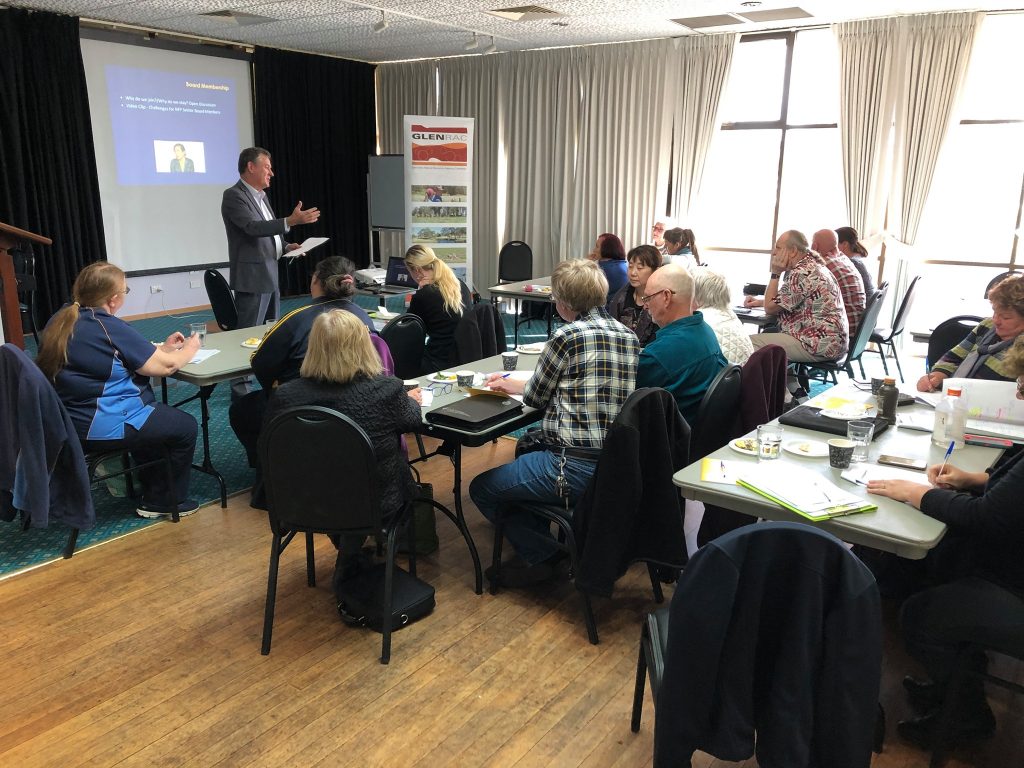
At the southern tip of the Eyre Peninsula in South Australia, Coffin Bay is a small town of about 600 people. Known around the world for its fresh oysters and beautiful fishing spots, Coffin Bay is a popular tourist destination. For years the town has relied on the Community Hall as a place where residents can gather and socialise. In the last few years, a long list of required repairs has meant that the Hall hasn’t been being used to its full potential.
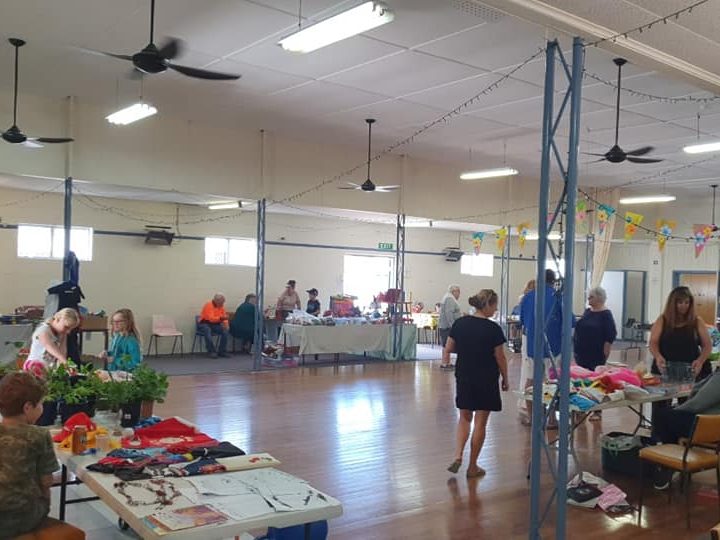
Coffin Bay Progress Association wanted that to change. They act as a collective voice for the community to help sustain and maintain the values of their unique, relaxed, and caring residents. With a $5,914 Strengthening Rural Communities (SRC) grant funded by Australia Post, the Association has been able to kick off their six-stage upgrade and renovation plan for the hall. They used the SRC grant to fund the installation of a new hot water system and ceiling fans. The grant has also enabled them to update the men’s toilet facilities that were in much need of repairs.
The improvements have already seen the Hall host an array of activities and services for the community. For example, the renovations provided the opportunity for several Community Health services to be held under one roof. The town doctor, who needed to relocate due to SA Rural Health not renewing the lease of the practice, has been able to use the space to see patients and support the community. Additionally, mental health clinics and AA meetings have all moved to the hall as well.
Carol Fathers, president of the Coffin Bay Progress Association said, “We had an old storeroom which we were able to clear out and turn into a bright & cheerful clinic, everyone is happy.”
The Progress Association is happy to see works on their beloved Community Hall continue with hopes to tile their kitchen, plant a community garden, and create a men’s shed in the future. There are also plans to get local schools involved in painting a mural. The Community Hall has so much potential to help fight social isolation and boost the sense of community spirit for the residents of Coffin Bay.
Located 1,000 km from Brisbane in the southwest of Queensland, Eromanga has a big claim to fame. The rural town, hidden deep in the outback of Australia, may only be 119 residents – but the biggest by far is Cooper, a 30 metre long and 6.5 metre high Dinosaur.
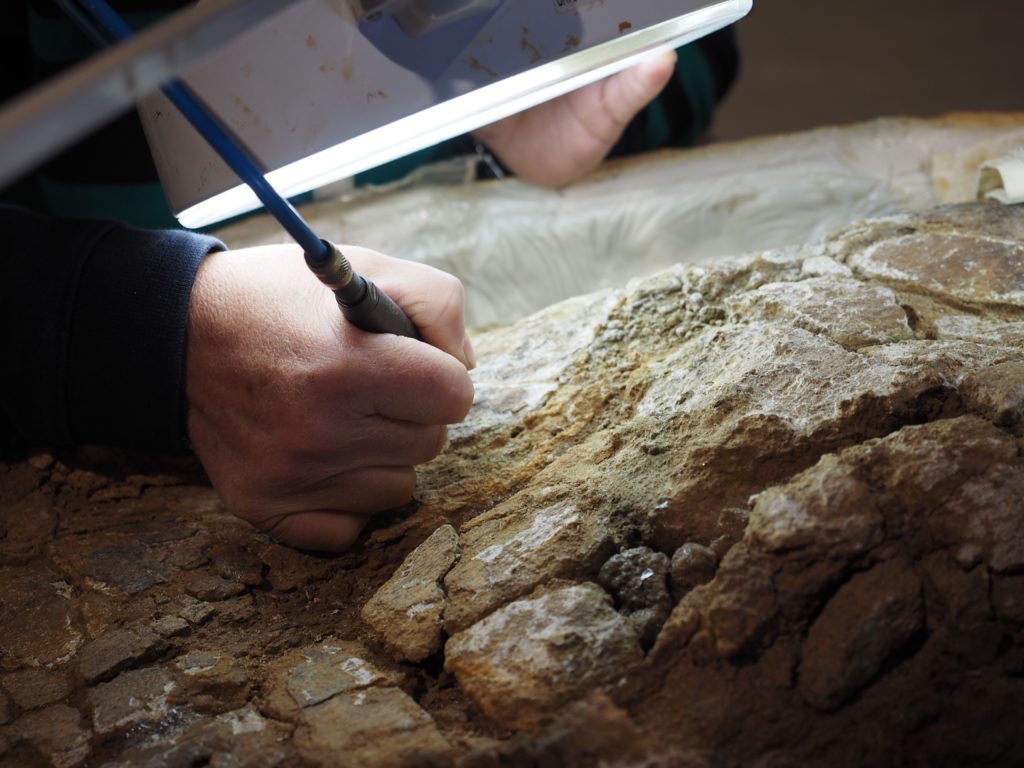
Eromanga is Australia’s furthest town from the ocean, and was drought declared for 13 years out of the 18 years to 2018. The many challenges brought on by a long drought, paired with the limited access to the town, have made increasing tourism a top priority for the local community.
Until recently, tourism around the region was almost non-existent, until the first dinosaur genus was found in 2004. From then, the Outback Gondwana Foundation founded the Eromanga Natural History Museum (ENHM), and since 2008 has been collecting and processing the fossils found in the area for locals, scientists and tourists to view.
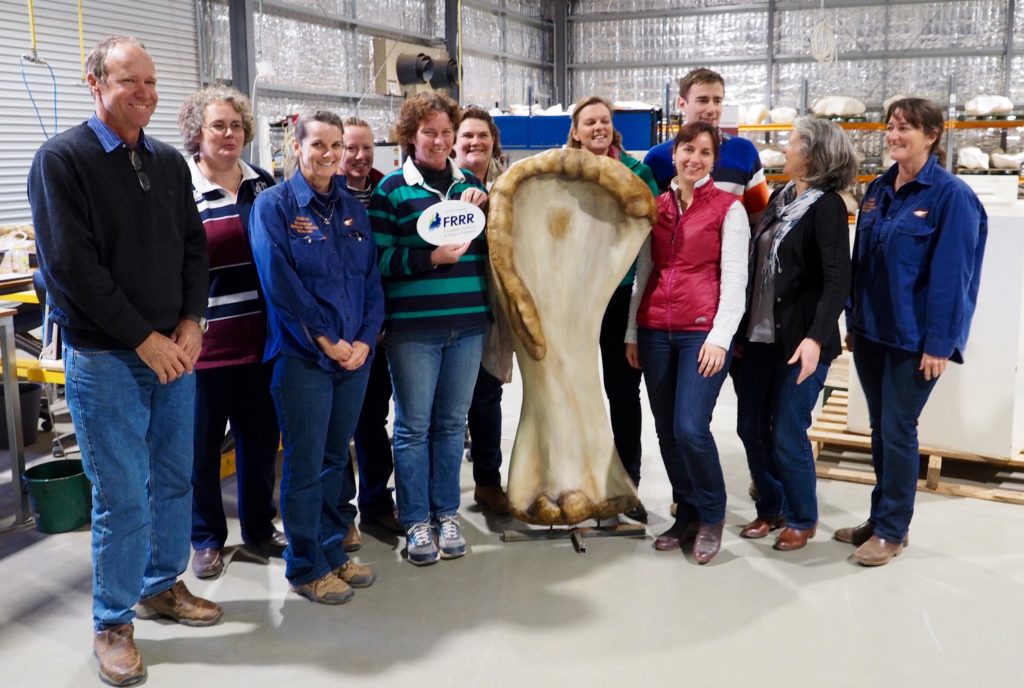
The museum features fossils that have been preserved for more than 95 million years, however being located in a remote area has meant little foot traffic. Visitors faced long travel times to and from the museum, making day trips nearly impossible.
To overcome this obstacle, the Museum opened their own on-site accommodation, bringing more business to the area by allowing visitors to stay longer. Cooper’s Country Lodge offers four-star rooms, and thanks to a recent grant from FRRR, now has new kitchen and laundry facilities for their guests to enjoy.
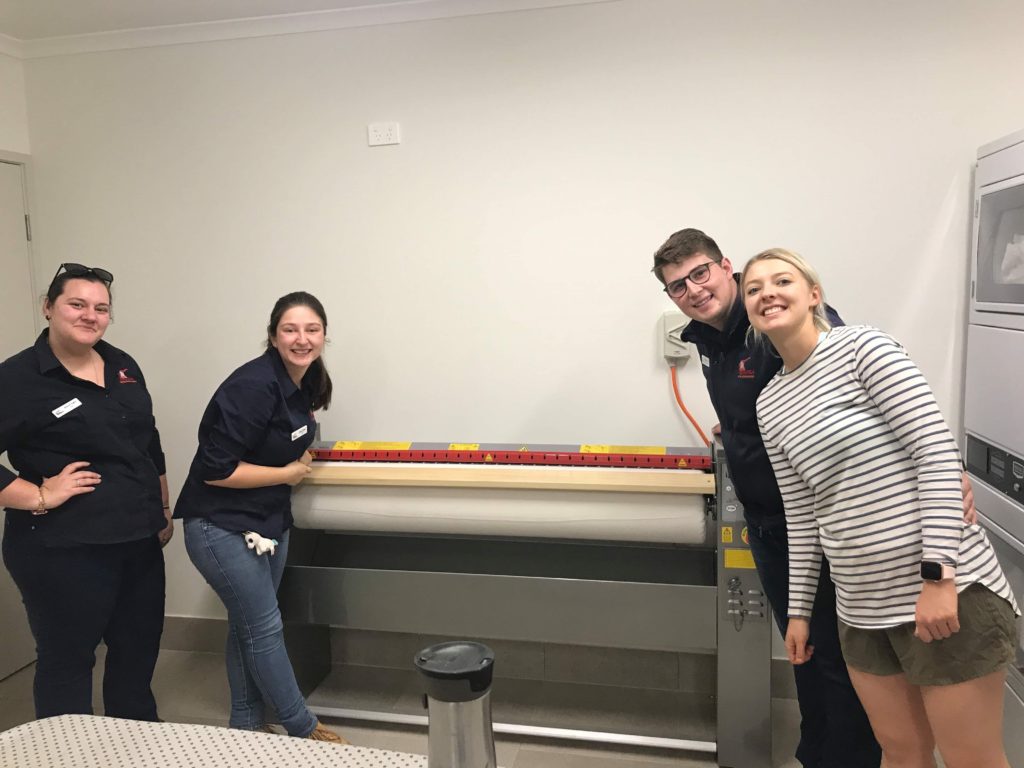
The team at ENHM received a $20,000 grant through FRRR’s Tackling Tough Times Together program, funded by Australia Post, which allowed them to purchase equipment and fit out their onsite kitchen, laundry and support services. There is also a commercial kitchen featuring a microwave, griddle, deep fryer and new cookware, together with dining furniture and outdoor table & chairs.
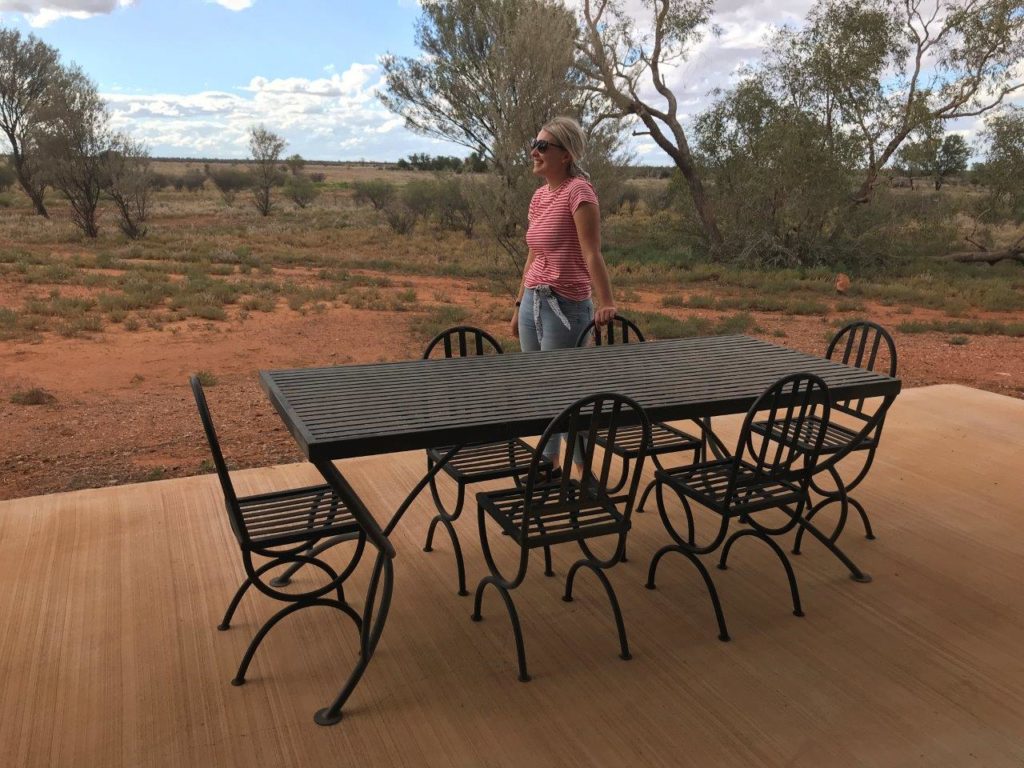
The investment is already paying off. Despite the lockdowns and travel restrictions throughout the COVID-19 pandemic, the popularity of the ENHM and Cooper’s Country Lodge has only increased, as Queenslanders have spent their holidays travelling in their own backyard. In 2020, the ENHM received the TripAdvisor Travellers Choice Award, meaning the Museum is in the top 10% of attractions worldwide.
If you head north along the stunning beaches of the Kingsborough coast in southern Tasmania, you are bound to hit the town of Kingston. It’s one of the more central points on this 300km long beach, and the home to about 1,990 people.
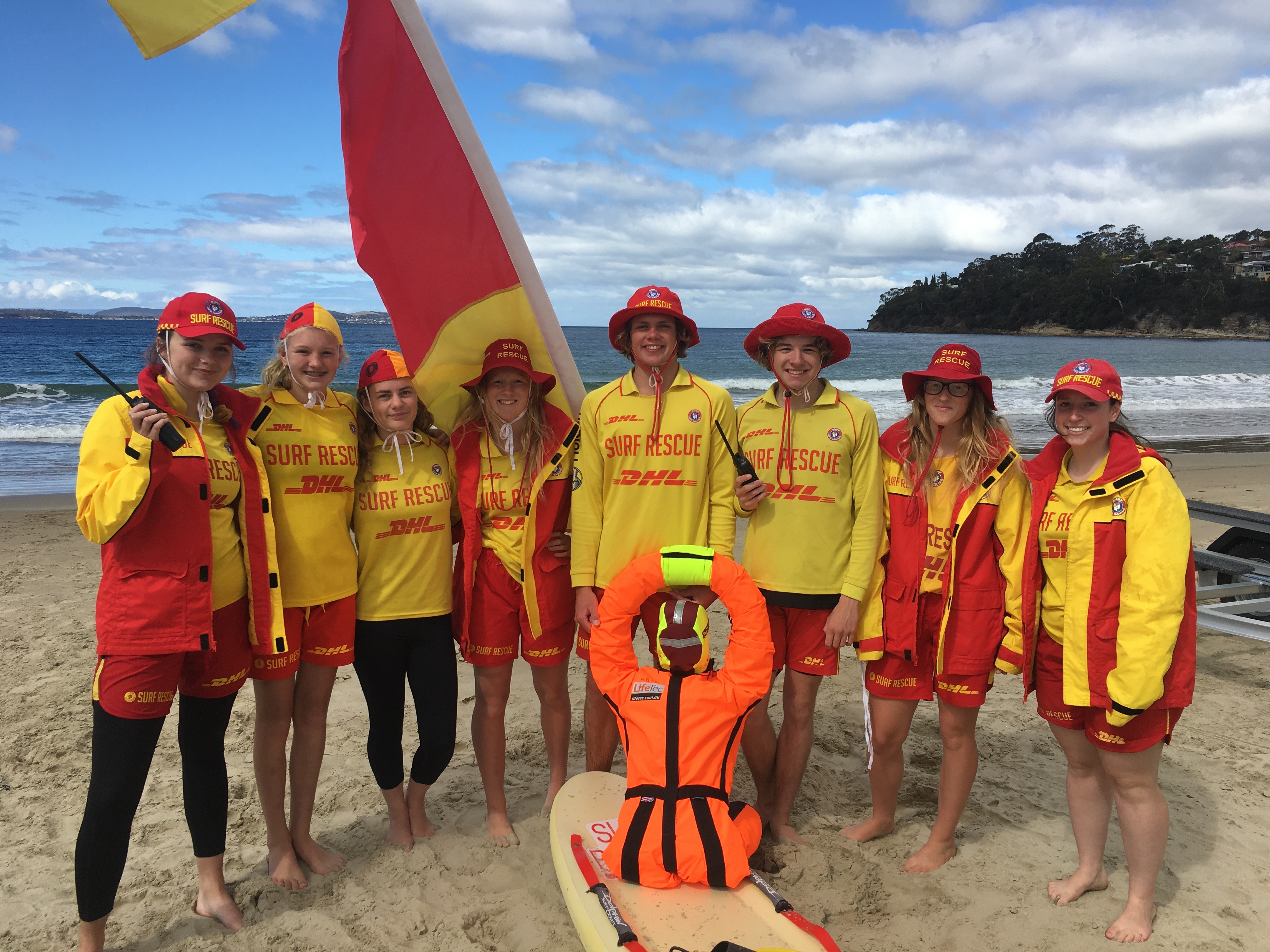
Though small in size, Kingston plays a big role in coast-safety for a good chunk of southern Tassie. The Kingston Beach Surf Life Saving Club (KBSLSC) is the most accessible lifesaving club in the south, and therefore part of the Surf Life Saving Tasmania’s emergency response services. The Club provides equipment and volunteer personnel that are on-call 24/7, ready to respond to emergency situations as tasked by TasPol.
The KBSLSC is community-run and supported by a group of volunteers – passionate locals between the ages of 15 to 70 – who all take their job of beach-safety very seriously. Last year, the Club wanted to increase their preparedness for, and ability to respond to and recover from, emergency flood and bushfire events. Having heard of the FRRR Strengthening Rural Communities grant program, they decided to give it a go, and wrote a great application explaining why they needed new equipment, and how it would benefit their community. We were impressed by their commitment to increasing disaster preparedness and resilience and, needless to say, the application was approved!
The $3,382 grant, generously funded by Australia Post, allowed them to purchase an inflatable rescue boat training dummy, Bluetooth ICOM waterproof radios and stereo headsets – exactly what they needed to conduct their new water rescue and evacuation training.
With this new equipment on hand, the members were excited about their new state-of-the-art gear and the ability to train for real life rescue scenarios. “We are proud of our members using the equipment often and when needed,” the Club said in their assessment. They also told us the ‘dummy’, in particular, was an instrumental piece of equipment for the patrolling members, as it made the training more realistic and effective.
They were all very pleased to have made the community an even safer place in the event of natural disasters. “We just wish we had more surf at our beach!” an SLSC staff member said.

